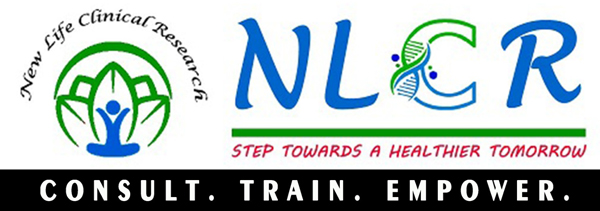12 Week Course Structure (Comprehensive)

Week 1-2: Industry and Research Overview, Phases of trials, Stakeholders, Historical events of unethical research, Feasibility questionnaires, Site Selection, and Initiation Visits, Site equipment/layout/calibration, Budget, Start-Up Regulatory, Prescreening, Review of Protocol, IRB, ICF, Confidentiality and Privacy, Participant safety and AEs, QA, Regulatory documentation and Recordkeeping, Research Misconduct, Roles and Responsibilities, Recruitment and Retention, IP, Standard Operating Procedures, GCP Certification and Homework assignment plus acronyms, terminology.
Week 3-4: CRC responsibilities, Informed Consent process, Mock consent, Protocol dissection, Inclusion/Exclusion Criteria, Subject Binders, Source Documents, Progress Notes, Note to File, IP accountability, Regulatory initiation and maintenance, IRB submissions and communication, Clinical procedures (basic knowledge on how to perform: Vitals, ECG, phlebotomy), Labs discussion, IATA certification, and Homework assignment plus acronyms, terminology
Week 5-6: ACRP, Study Management, Screening visit specifics, Medical History, Randomization/baseline, IWRS, EDC, Query resolution, Consent process, Source documents, IP storage, IP temperature, Patient recruitment strategies, Organizing subjects' charts, Interacting with Sponsors and CRAs, IRB, IRB forms, Protocol deviations, and action plans, Subject status, AEs/SAEs reporting, Con Meds, and treatments, Maintaining different Logs, HSP certification plus terminology
Week 7-8: SOCRA, HIPAA, Ethical principles, Safety, ICH-GCP and FDA guidelines (Title 21 including 21 CFR 56, 21 CFR 54, 21 CFR 50 and 21 CFR 11), Research staff obligations, Managing IP, Managing multiple studies, laboratory essentials, regulatory binder maintenance, ICF, AEs and SAEs, ALCOA-C, effective documenting, monitoring and closeout visits, Quality assurance, and Inspections, Data management, Research Misconduct, Vulnerable population, Drug accountability, Study patient evaluation, CITI certification plus terminology
Week 9-10: CITI, Protocol execution, Clinical trials operations, PI's responsibilities, In-depth discussions, Showing actual study documents, logs and forms, Case studies, Questions/Answers, Test and Resume Building
Week 11-12: Further review, Discussions, Interview preparation, Networking strategies, and Completion
6-Week Bootcamp Overview
Week 1: Foundations Research Overview, Stakeholders, Site Selection, Protocol, Safety, GCP, and IATA
Week 2: CRC Responsibilities Informed Consent, Protocol, Source Docs, IP, and IRB Submissions
Week 3: Study Management Screening, IWRS, EDC, Recruitment, and AEs/SAEs
Week 4: Ethics & Compliance HIPAA, ICH-GCP, FDA Guidelines, and CITI Certification
Week 5: Operations & Career Prep Trial Operations, PI Role, Documentation, and Resume Building
Week 6: Review & Completion Final Review, Interview Prep, and Networking
The difference between the bootcamp and comprehensive training lies in the depth and duration of the material covered. Comprehensive training provides deeper insights, in-depth knowledge, and more hands-on guidance, helping candidates understand various job titles and site operations in greater detail, including budget negotiations with sponsors and insights toward opening their own research site in the future. This training is ideal for those seeking a thorough understanding of clinical research roles and long-term growth opportunities. On the other hand, the bootcamp offers a faster-paced overview of the same topics but with less detail, making it suitable for those who already have some research knowledge/experience and want to refresh their skills or for those seeking a quicker and more affordable entry into the industry. The best choice depends on your career goals and the level of understanding you need.
The fee for the comprehensive training is $3000 and BootCamp is $1500. The payment can be paid in installments. Scholarships are provided to financially struggling students on a case-by-case basis.
